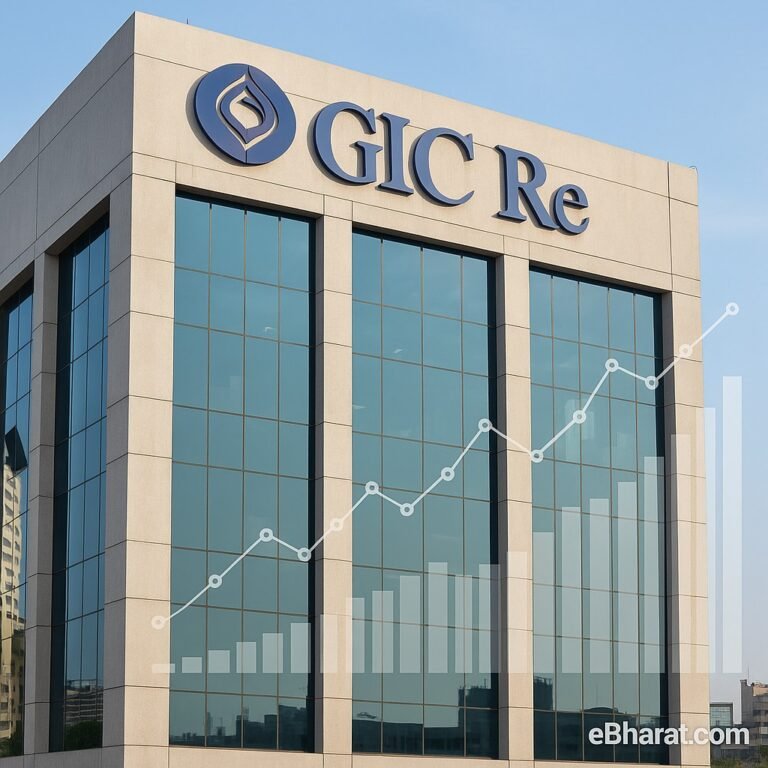
Introduction
Reinsurance is often called insurance for insurance companies. But within reinsurance, there are two main types that insurers in India use — Facultative Reinsurance and Treaty Reinsurance.
For common readers, these words sound heavy. But in simple terms:
- Facultative is like buying insurance one policy at a time.
- Treaty is like buying insurance in bulk for a whole category.
In this guide, we explain the differences between Facultative and Treaty Reinsurance, how Indian insurers use them, and what it means for the stability of our insurance system.
What is Facultative Reinsurance?
Facultative means case-by-case. Here, the insurance company decides to reinsure a single risk or policy with another reinsurer.
Example: If an insurance company issues a policy for a ₹1,000 crore refinery in Gujarat, it may not want to carry the entire risk. So, it places that single policy with a reinsurer like GIC Re or Lloyd’s India.
- Flexibility: The reinsurer can accept or reject the proposal.
- High-value projects: Used in aviation, energy, oil refineries, skyscrapers, or mega infrastructure.
- Documentation-heavy: Each contract is negotiated separately.
What is Treaty Reinsurance?
Treaty means automatic cover for a block of policies. Here, an insurer and reinsurer sign an agreement that covers a whole class of business — like all motor policies, or all health policies.
Example: If a company like ICICI Lombard writes thousands of motor policies in a year, it signs a treaty with a reinsurer. The reinsurer automatically takes a share of all those policies.
- Bulk cover: Saves time and admin work.
- Consistency: Insurer doesn’t need to seek approval each time.
- Useful for retail insurance: Motor, health, crop — where thousands of policies are issued.
Facultative vs Treaty Reinsurance: Side by Side
| Feature | Facultative Reinsurance | Treaty Reinsurance |
|---|---|---|
| Definition | Case-by-case reinsurance for individual risks | Automatic cover for a whole class of policies |
| Best For | Large projects (aviation, refineries, power plants) | Retail portfolios (motor, health, crop) |
| Flexibility | Reinsurer can accept or reject each proposal | Pre-agreed (reinsurer must accept all risks under treaty) |
| Admin Work | High (separate contracts for each risk) | Low (one treaty covers many risks) |
| Usage in India | Special projects in oil, aviation, mega infra | Mass policies like motor and health insurance |
Why Both Matter in India
India is a country of mega projects and mass markets.
- For a new metro rail project in Mumbai, insurers use facultative cover to share the huge single risk.
- For schemes like Ayushman Bharat or crop insurance, insurers rely on treaty reinsurance to spread thousands of small risks globally.
Without these two types, one cyclone, flood, or major accident could bankrupt a local insurer. That’s why reinsurance plays such a central role in our system. Learn more about how reinsurance works in India here.
FAQs
Q. Which is more common in India — Facultative or Treaty?
Treaty is more common because of mass retail policies. Facultative is for niche, high-value cases.
Q. Can an Indian insurer use both?
Yes. Many companies use treaty for regular business and facultative for special risks.
Q. Why should policyholders care?
Because reinsurance ensures their claims get paid even when losses are massive.
Both Facultative and Treaty reinsurance are important in India’s insurance ecosystem. One handles unique mega projects, the other takes care of everyday policies. Together, they keep the system stable, protect insurers, and ensure ordinary people get claims without delay.
Become an Insurance Agent with eBharat
India’s reinsurance market is growing fast. You can be part of this sector by joining our HDFC Life Agent Network. Get training, digital tools, WhatsApp kits, and quality leads to start your journey as an agent.
Apply Now — Start Your Career












